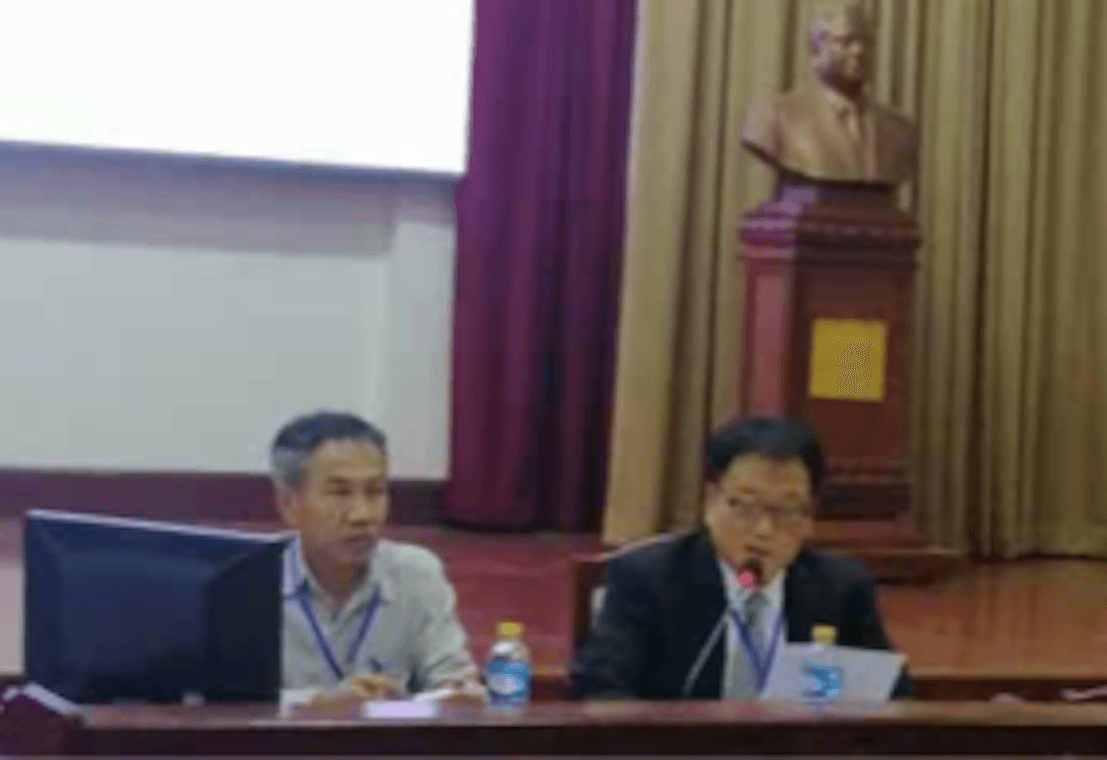December 5, 2024

Representatives of the two agricultural entities, including project investigators, gathered on Tuesday to evaluate the achievements of four cooperative projects over the past year as well as plan future activities focused on income generation and rural livelihood improvement. The programme is working to boost legume yields to improve food and nutrition security in Laos and raise the incomes of pig and chicken farmers through the use of feed mixing techniques using regional products. Other initiatives include the development of technology to increase the yield and quality of mandarins grown in Nambark district, Luang Prabang province, and improving smallholder farmers’ income through the use of suitable vegetable varieties and farming methods in the wet season.
Director of the KOPIA Centre, Mr Chang-Ho Shin, stressed that distribution of high-quality crop varieties and technology transfer to farmers were the main purposes of the projects. This would not only lead to an increase in crop yields and boost farmers’ incomes, but also contribute to the development of agriculture in Laos.
Following the meeting, Chairperson of the Project Steering Committee, Dr Chanhsamon Phongoudome, said the three projects on legumes, vegetables and mandarin oranges had been very successful in terms of the project objectives and planned activities, but unfortunately the livestock project had to be terminated. Dr Chanhsamon hoped a new project related to livestock, such as the raising of chickens or goats, would be launched in 2020 to replace the current livestock project.
KOPIA is an overseas branch of the Korean government’s Rural Development Administration. Its vision is to pursue sustainable development and mutual benefits between Korea and its partner countries through cooperation in agricultural technology. The KOPIA Centre in Laos was established in 2016 based on an agreement between the Rural Development Administration, Korea, and the National Agriculture and Forestry Research Institute. Some 20 KOPIA Centres around the world have been established since 2009, including eight in Asian countries, five in Latin America, and seven in Africa.
Information source: Vientiane Times.


